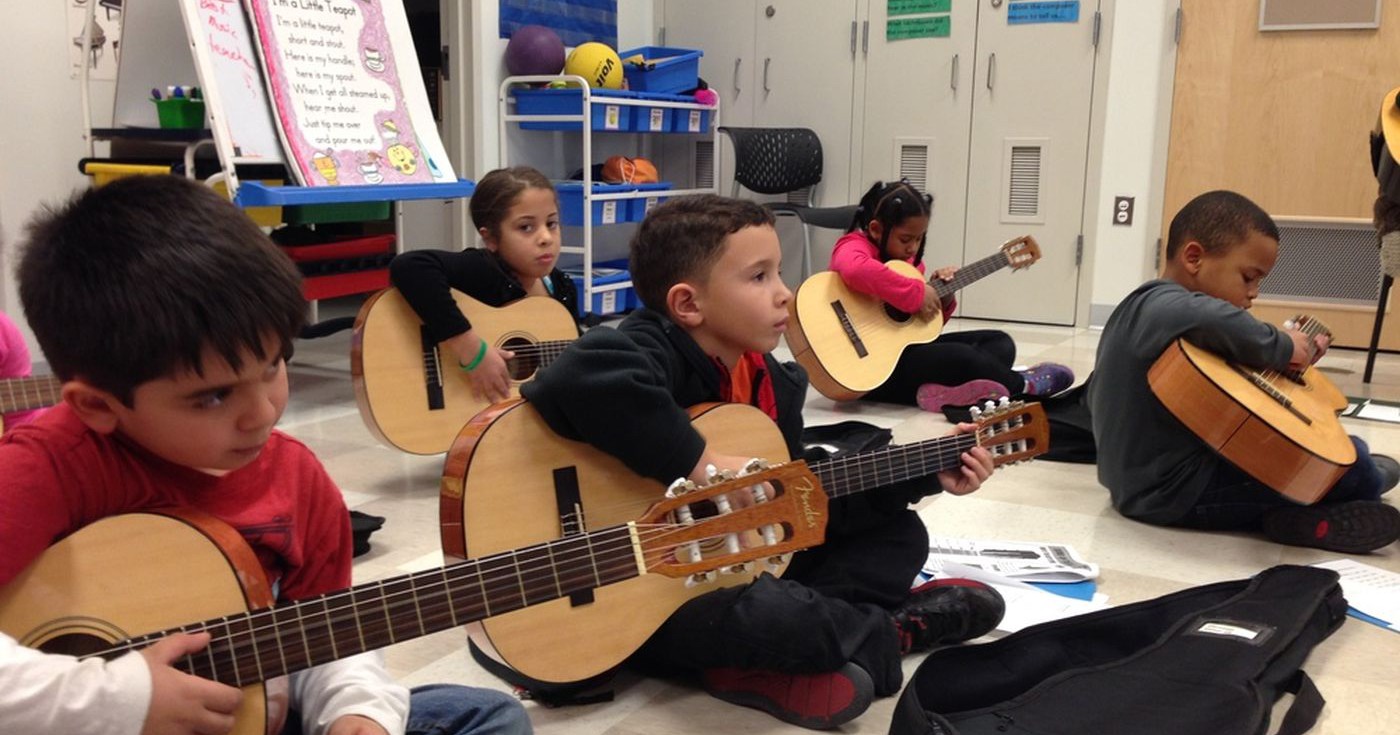
Musical Education Pays Off—Research Shows Instrument-Playing Students Perform Better at School25.06.2019
The discoveries made by the research team from the University of British Columbia have been published in the Journal of Educational Psychology. Results of their study show that students who take music courses achieve significantly better scores at math, biology, and English exams compared to their non-musical peers.
In the introduction to their paper, the research team explained that arts and music classes are usually the first to be done away with when school budgets have to be cut. This is driven by the pervasive belief that students spending time learning music don’t have enough of it left to focus properly on science and language classes.
"Our research proved this belief wrong and found the more the students engage with music, the better they do in those subjects. The students who learned to play a musical instrument in elementary and continued playing in high school not only score significantly higher, but were about one academic year ahead of their non-music peers with regard to their English, mathematics and science skills, as measured by their exam grades, regardless of their socioeconomic background, ethnicity, prior learning in mathematics and English, and gender,” said Peter Gouzouasis, the study’s principal investigator and a professor at the University of British Columbia.
Gouzouasis and his team examined a sample of over 112,000 public school students from British Columbia who graduated high school between 2012 and 2015. The sample included only students who completed at least one standardized exam for math, science, and English, and a well-documented record of prior learning in numeracy and literacy skills. The researchers also compiled detailed demographic data on their subject, including including gender, ethnicity, socioeconomic status, and specific neighborhoods they grew up in. Those students who had at least one instrumental music course in their regular curriculum were considered to have taken music classes. The study also took into account courses that required previous instrumental music experience, such as concert band, orchestra, jazz band, concert choir, and vocal jazz.
The team discovered that the relationship between music education and academic achievement was more pronounced for students who chose classes teaching instrumental music rather than vocal music. These findings suggest that the skills learned during instrument practice transfer best to student performance in school.
“Learning to play a musical instrument and playing in an ensemble is very demanding. A student has to learn to read music notation, develop eye-hand-mind coordination, develop keen listening skills, develop team skills for playing in an ensemble and develop discipline to practice. All those learning experiences play a role in enhancing children's cognitive capacities and their self-efficacy,” said Martin Guhn, co-author of the study and an assistant professor at the University of British Columbia.
The researchers hope that their findings will draw the attention of the public—students, their parents teachers, as well as school authorities and decision-makers responsible for education at the policy level.
"Often, resources for music education—including the hiring of trained, specialized music educators, and band and stringed instruments—are cut or not available in elementary and secondary schools so that they could focus on math, science and English. The irony is that music education—multiple years of high-quality instrumental learning and playing in a band or orchestra or singing in a choir at an advanced level—can be the very thing that improves all-around academic achievement and an ideal way to have students learn more holistically in schools,” said Gouzouasis.
see also
- Marysia Makowska: Advocate for Imperfection
 Papaya Films
Papaya FilmsPeople
Marysia Makowska: Advocate for Imperfection
- Company Develops Camouflage That Can Conceal Humans and Even Entire Buildings
News
Company Develops Camouflage That Can Conceal Humans and Even Entire Buildings
- "Tempo": We All Remember a Summer Like That
People
"Tempo": We All Remember a Summer Like That
- What’s Next for VR?
Opinions
What’s Next for VR?
discover playlists
-
Teledyski
 15
15Teledyski
-
John Peel Sessions
 17
17John Peel Sessions
-
Instagram Stories PYD 2020
 02
02Instagram Stories PYD 2020
-
Papaya Young Directors 6 #pydmastertalks
 16
16Papaya Young Directors 6 #pydmastertalks
